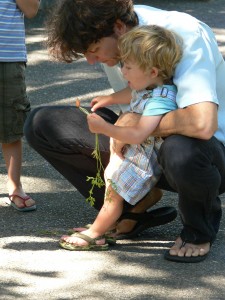The following is an excerpt from the keynote speech I delivered yesterday at the 18th Annual Character Education Conference in St. Louis.
We are human and by definition that means we are vulnerable. Unlike any other creatures, we are aware of our own mortality and so we experience worry and grief. We also know the joys of working together and supporting each other. We celebrate. We nurture. We protect. Because we can be so loving, we sometimes suffer rejection and loss. We trust. We open up and give of ourselves, and sometimes we feel betrayed.
In Teen World, aggressive anger is OK, but real vulnerability, are you kidding me? Teens get clear messages from peers to stay away from vulnerable emotions… especially in public. If you are hurt, don’t show it. If you are disappointed, don’t show it. If you love someone, don’t show it. Slip up and let some vulnerability bleed through the veneer and you are a baby. A wuss. A wimp. You are a pathetic loser.
Wrong! I am a human being.
Teaching kids to be good people means helping them understand and accept the broad spectrum of human emotions. Being afraid is not a cause for shame. Tears are no less acceptable than laughter. It’s all part of the package. If my tears are an honest expression of sadness, grief, joy, why should I hide them from you. Or be embarrassed in front of you?
We are mistaken when we buy into the notion that vulnerability is weakness. Our strength comes from our vulnerability. This may seem counter-intuitive since the word vulnerable derives from the Latin vulnere (meaning “to wound”) A wounded individual is hardly at her strongest, but I see emotions in a different light. Our feelings are our most authentic responses to life. If I am hurt, I cry. If someone is with me, my tears are likely to remind him of sadness he has felt. By responding to me, he acknowledges his own humanity. But if he mocks my tears or tries to push them aside, that indicates he is afraid to respond with compassion. Afraid to show how he has been touched. That he holds himself back from experiencing his full humanity makes me want to reach out and teach, because he is in desperate need of an education.
Unless we can embrace the vulnerable emotions underneath the Anger Lid, it is impossible for us to reach our full human potential. When we feel hurt and choose instead to plaster over our vulnerability with indifference, cool detachment or social aggression, we build walls between us. But if, instead, we are willing to honor our vulnerability, then we can strengthen our connections to other people. Isn’t that exactly what we’re trying to teach our students by creating positive school climates? When we recognize on a deep level that we all experience the same emotions, how can we not empathize with each other? How can we help but reach out in friendship to a person who needs a friend?
Schools that encourage kids to be humane graduate people of good character who are also, good judges of character. When it comes to how we treat each other, the graduates of those schools, have learned to set the bar very high for themselves and for their peers.












